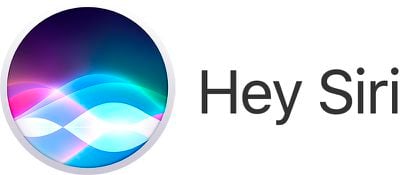Lawsuit Accusing Apple of Recording of Confidential Siri Requests Without User Consent Dismissed
A Northern California judge today dismissed a class action lawsuit that accused Apple of the "unlawful and intentional" recording of confidential Siri communications without user consent.

The class action lawsuit was first filed in August 2019 after it became known that Apple had employed contractors to listen to and grade some anonymized Siri conversations for product improvement purposes.
Those contractors told The Guardian that they overheard confidential medical details, drug deals, and other private information from accidental Siri activations, and some expressed concern that users were not adequately informed about the recordings.
As noted by Bloomberg, U.S. District Judge Jeffrey White said that the plaintiffs in the class action case did not provide enough detail about the alleged recordings that Apple collected. The plaintiffs are required to prove that they have suffered injury from Apple's actions in a "concrete and particularized" way that's not "conjectural or hypothetical."
All of the allegations in the lawsuit were based on information that was included in the original story from The Guardian highlighting Apple's use of contractors to analyze Siri data, with the plaintiffs providing no proof that their own private data was accidentally collected by Apple and misused.
The Guardian article does not plausibly suggest that all Apple's devices were subject to accidental triggers and review by third party contractors, much less that such interception always occurred in reasonably private settings. The article discusses frequency of accidental triggers primarily in relation to the Apple Watch and the HomePod speakers, neither of which are owned by the Plaintiffs.
Moreover, the article expressly states that only a "small portion" of daily Siri activations including were sent to contractors and that they included both deliberate and accidental activations. Finally, although the article describes private communications among the recordings sent to contractors, Plaintiffs allege no facts to suggest that their own private communications were intercepted by accidental triggers.
Though Apple's motion to dismiss the lawsuit was granted, the judge in the case is allowing the consumers involved in the lawsuit to revise and refile within 20 days, so Apple is not in the clear as of yet.
Following the class action lawsuit and other negative public feedback, Apple temporarily suspended and overhauled its Siri evaluation program, and in iOS 13.2, added an option to let users delete Siri history and opt out of sharing audio recordings.
Popular Stories
Despite being more than two years old, Apple's AirPods Pro 2 still dominate the premium wireless‑earbud space, thanks to a potent mix of top‑tier audio, class‑leading noise cancellation, and Apple's habit of delivering major new features through software updates. With AirPods Pro 3 widely expected to arrive in 2025, prospective buyers now face a familiar dilemma: snap up the proven...
Apple's iPhone development roadmap runs several years into the future and the company is continually working with suppliers on several successive iPhone models simultaneously, which is why we often get rumored features months ahead of launch. The iPhone 17 series is no different, and we already have a good idea of what to expect from Apple's 2025 smartphone lineup.
If you skipped the iPhone...
Apple is preparing a "bold" new iPhone Pro model for the iPhone's 20th anniversary in 2027, according to Bloomberg's Mark Gurman. As part of what's being described as a "major shake-up," Apple is said to be developing a design that makes more extensive use of glass – and this could point directly to the display itself.
Here's the case for Apple releasing a truly all-screen iPhone with no...
While the iPhone 17 Pro and iPhone 17 Pro Max are not expected to launch until September, there are already plenty of rumors about the devices.
Subscribe to the MacRumors YouTube channel for more videos.
Below, we recap key changes rumored for the iPhone 17 Pro models as of April 2025:
Aluminum frame: iPhone 17 Pro models are rumored to have an aluminum frame, whereas the iPhone 15 Pro and ...
If you have been experiencing issues with wireless CarPlay in your vehicle lately, it was likely due to a software bug that has now been fixed.
Apple released iOS 18.4.1 today, and the update's release notes say it "addresses a rare issue that prevents wireless CarPlay connection in certain vehicles."
If wireless CarPlay was acting up for you, updating your iPhone to iOS 18.4.1 should...
This week saw rumor updates on the iPhone 17 Pro and next-generation Vision Pro, while a minor iOS 18.4.1 update delivered not just security fixes but also a fix for some CarPlay issues.
We also looked ahead at what else is in Apple's pipeline for the rest of 2025 and even the 20th-anniversary iPhone coming in 2027, so read on below for all the details on these stories and more!
iPhone 17 ...
Apple seeded the third beta of iOS 18.5 to developers today, and so far the software update includes only a few minor changes.
The changes are in the Mail and Settings apps.
In the Mail app, you can now easily turn off contact photos directly within the app, by tapping on the circle with three dots in the top-right corner.
In the Settings app, AppleCare+ coverage information is more...






















